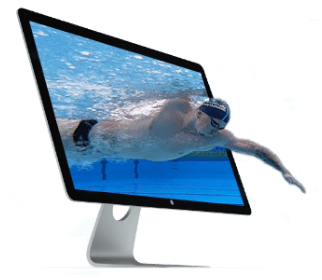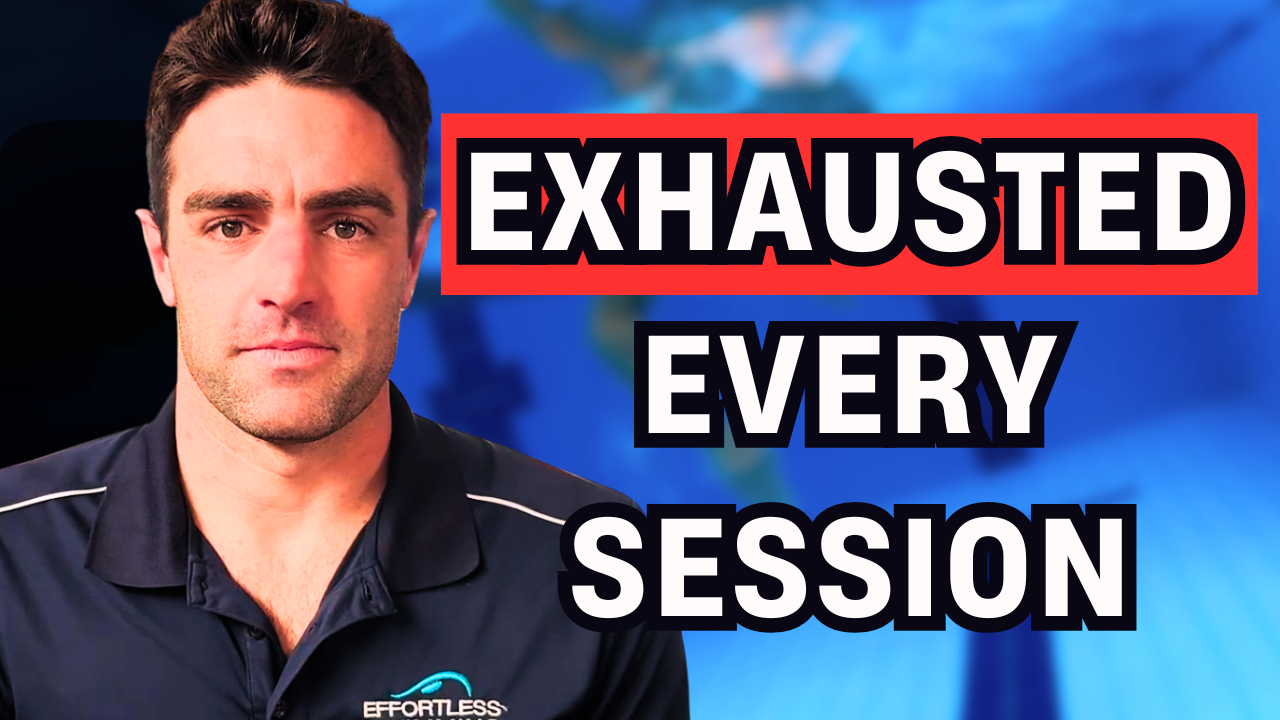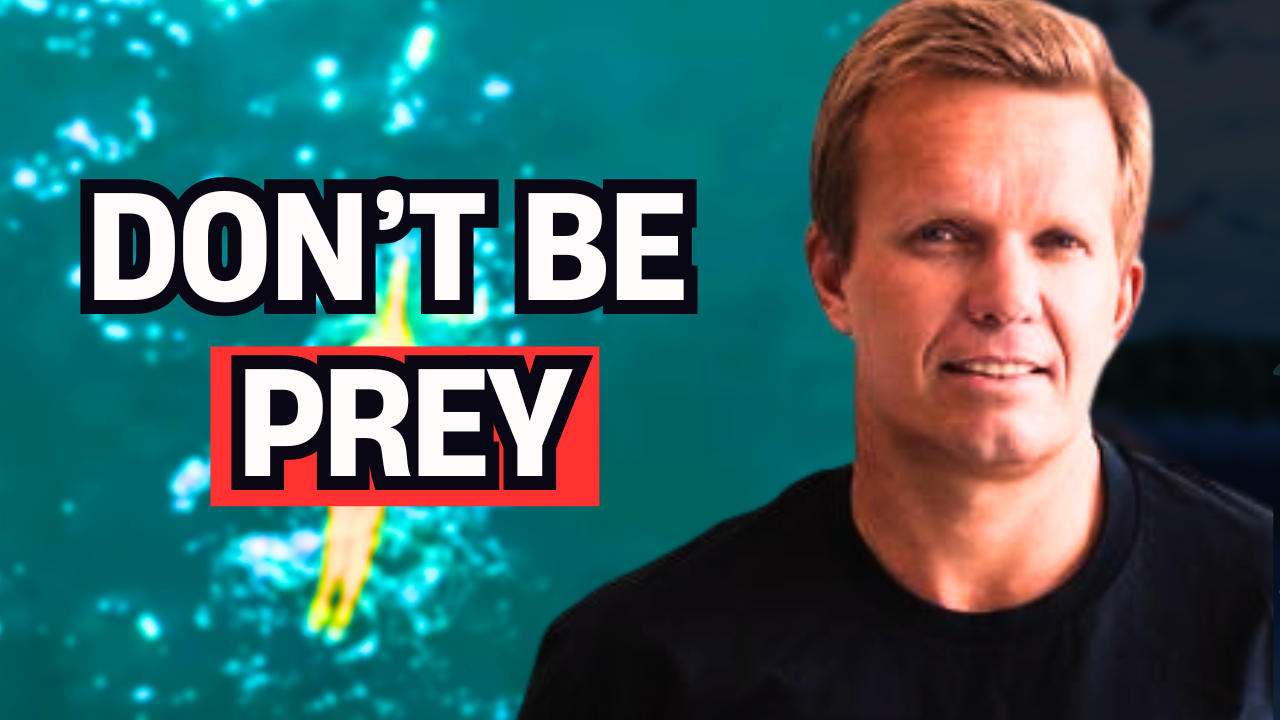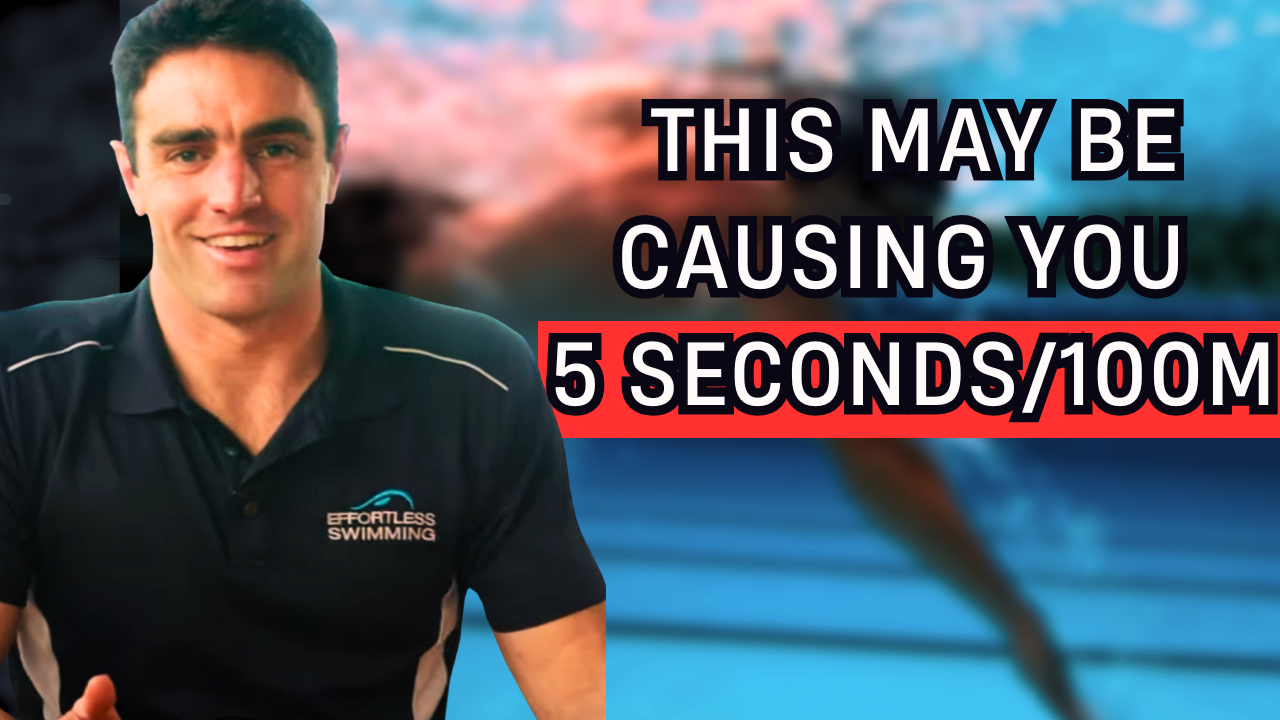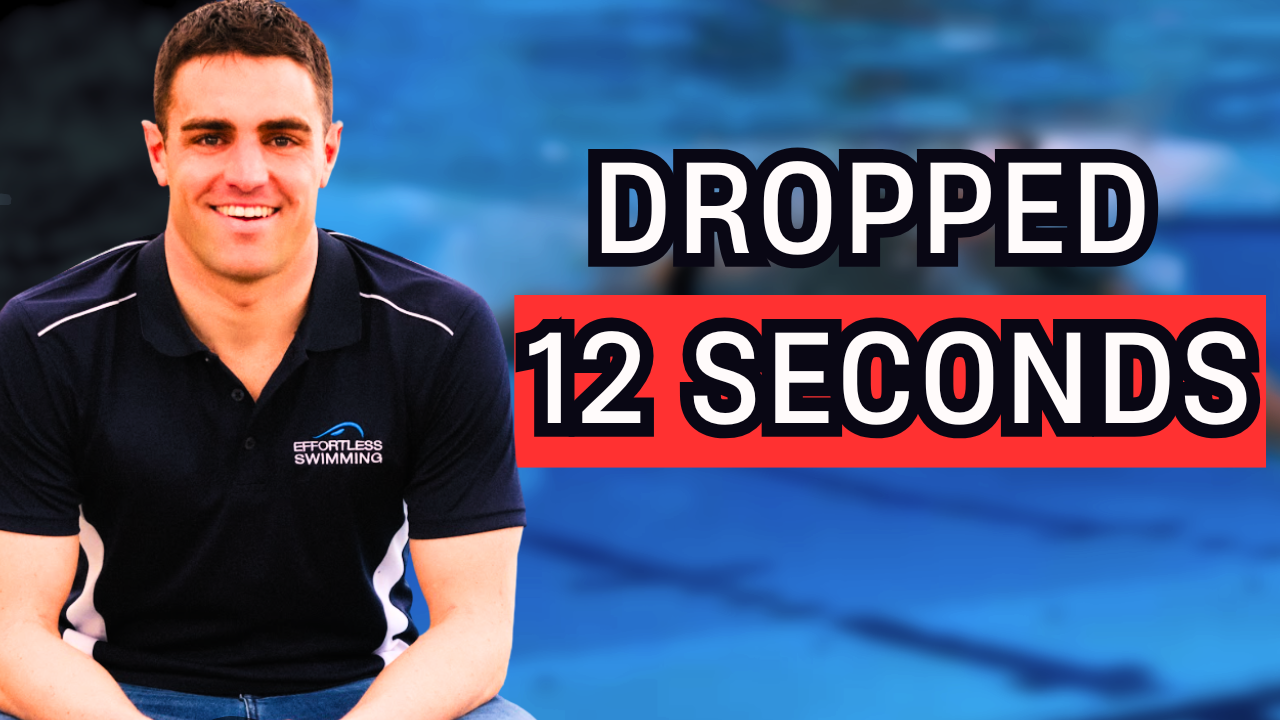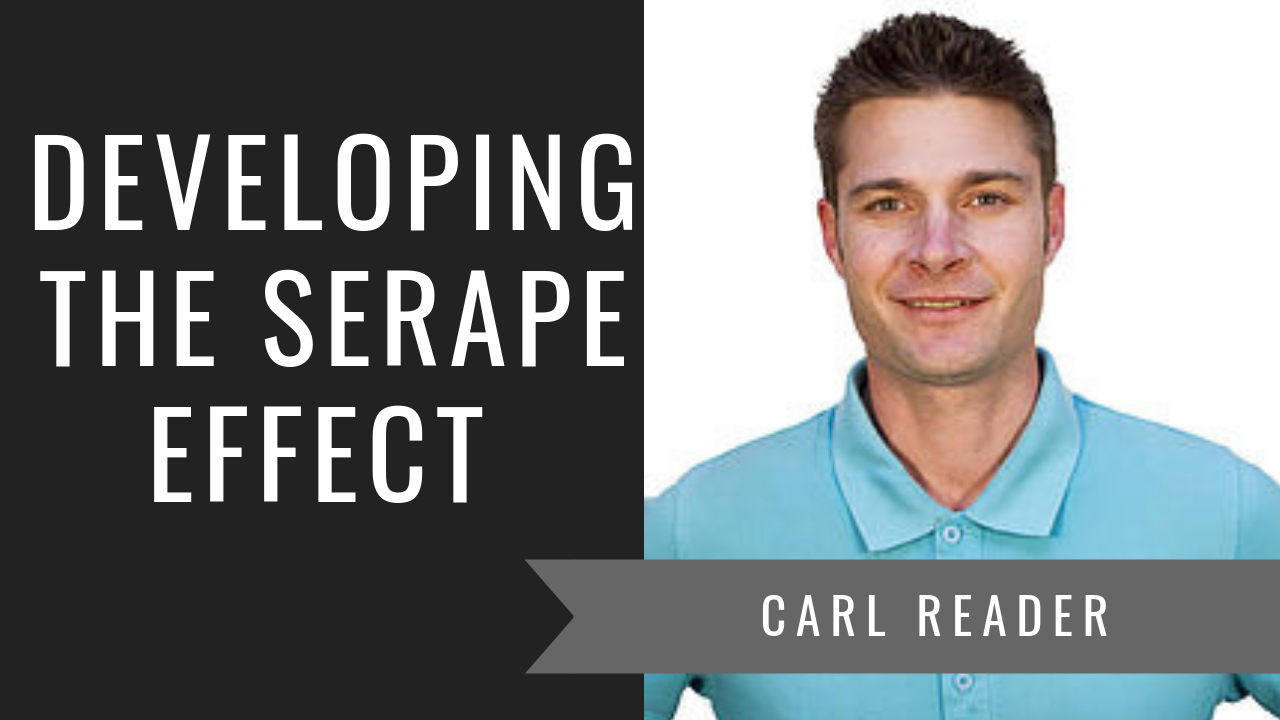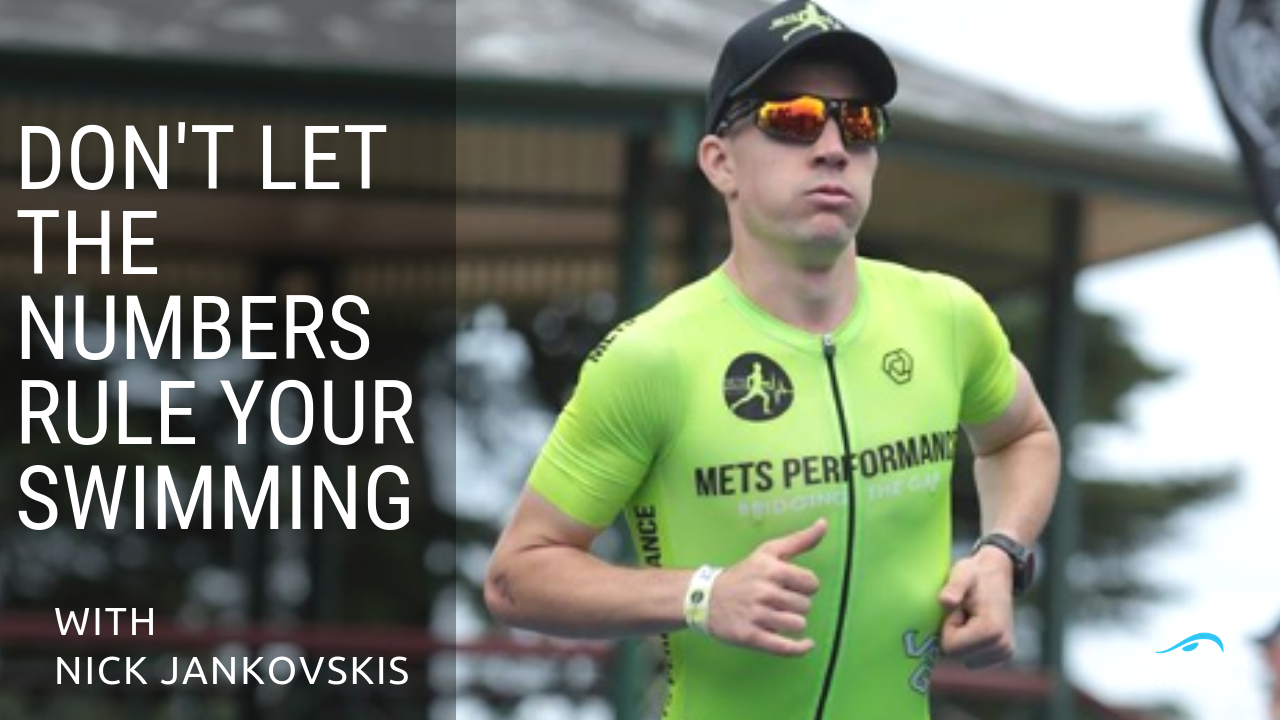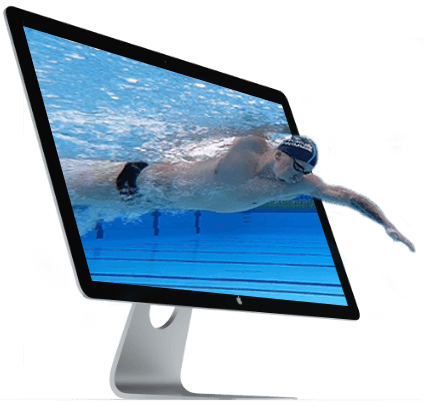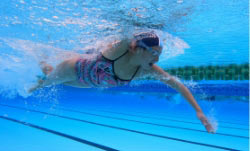Our guest today is Michael Andrew, he is a competitive swimmer and has been the gold medalist for the 100-meter individual medley at the 2016 FINA Short Course World Championships. He is training in a non-traditional way and has pioneered the Ultra Short Course Race Pace Training.
02:32 Ultra Short Race Pace Training
07:04 Team Environment
08:01 Sessions Per Week
10:12 Constantly Adjusting
11:21 You Have To Enjoy It In order For It To Workout
15:27 International Swimming League
19:57 Consistency in training
21:53 Keto Diet
YT Channel: Michael Andrew
Instagram: swimmermichael
Transcription:
Welcome to episode number 135. My guest today is professional swimmer, Michael Andrew. Now you might’ve heard of Michael Andrew before. He is probably one of the more non-traditional swimmers in the training sense and the diet sense, a number of other things. He really breaks the mold on what competitive swimmers might be doing in the future. He’s really pioneered the ultra-short race pace training. He’s really the first competitive or professional swimmer who’s followed it for a number of years and we’re really starting to see the outcomes of that with some incredible times, and with Michael really starting to hit his peak and hit his stride. So Michael’s about to compete in the World Champs, which will be starting very shortly. But on today’s podcast we talk about a number of things. We talk about ultra-short race pace training, his diet. He’s a currently on the Keto Diet and has been on that for quite awhile.
And we also talk about what he does during the day. So he, he surfs a lot. He trains 10 times a week, but his typical session is only about two kilometers. And we also talk about how he travels and he is able to enjoy quite a good lifestyle while competing at the very top level. So we also had mentioned the International Swimming League, which is a new competition, which is a little bit like the 2020 in Cricket, which is kind of like a different style of racing. You compete for a team and that is looking like it could be where a big part of the sport is actually heading. So we also talk about the ISL, which Michael’s a big driver in. So let’s jump into the podcast. I hope you enjoy it.
Brenton: Yeah, thanks so much for joining me on the podcast Michael. We were actually in Thanyaburi in Thailand at the same time. You and your family were there as you were training in October.
Michael Andrew: Did we meet in person?
Brenton: No, I didn’t get a chance to say hi. I saw you training a couple times but we were at the … Oh, who was the speaker? The South African swimmer was there at the time-
Brenton: Yes Penny Haynes. Yeah, we were … Myself and some of our swimmers were there at the same time. It was a really good talk. I know with a lot of the athletes that we had at Thanyaburi, they were watching you train during the day. I think that’s probably one of the most unique things about what you’re doing compared to a lot of other swimmers. Is you’ve got a very different style and method of training.
Brenton: For those people listening they probably don’t know … May not know too much about it but you’ve basically been doing Ultra-short Race-pace Training for many years. You’re not necessarily doing these long strenuous sessions that break you down. It’s just all about short, sharp sprinting.
Brenton: Can you go into a little bit of detail about that and what your thoughts are after doing it for so many years?
Michael Andrew: Yeah, for sure.
Michael Andrew: I guess ever since my age group career really started, or ever since I really pursued swimming, we’ve been doing everything very differently. From the training, to diet, to mental, the way we deal with our family. All of it’s different. The training being the most controversial.
Michael Andrew: Growing up my dad swam in South Africa. He went the traditional route. He did the yardage. He destroyed his body. He never really believed in that. When he started coaching me he did everything he could to seek information, seek data, what does science say and how does our body react to the way we push it. That’s where we ran into Dr. Brent Rushall. Australian originally, based in San Diego. He had come up with Ultra-short Race-pace Training.
Michael Andrew: The premise behind it … Well I guess if you were to put it into a single sentence USRPT is … Specificity rules. That’s all it is. Whenever I train I want to as specific to race gen as possible. The reason we do that is because our brain codes every movement so specifically so that when we come to race, if I’ve swum hundreds [bis 00:02:23], and drill, and kick, and upside down duckdive, whatever the heck it is we do nowadays. My bodies got all those different movements coded so when I race all this mix training produces mixed results. We try and get as streamlined as possible.
Michael Andrew: Now the yardage is much less. It’s a lot shorter. I’m typically going … I mean my big sessions are maybe 2,000 meters, 2,500 meters, if I’m going nuts in the morning. It’s just 100 pace at speed. It’s always … I mean it’s very intense.
Michael Andrew: I was speaking to a couple athletes earlier this morning about my training because I’m here in Singapore now, getting ready for World Champs. They asked me, “Are you sprinting every single practice?” I’m like, “Yeah, absolutely. Is that crazy?” They’re like, “I could never do that,” but it’s one of those things. It’s like yes it’s really hard but people look at the numbers. People look at, “Oh you got to being 6,000 yards to finish 100,” or whatever. It doesn’t make sense, and the body doesn’t need it, and the science is there. Now we’ve been able to test it with USRPT.
Michael Andrew: I guess if I was to run through a typical … I can kind of … That was a little bit of a rabbit trail but if I run through a typical session, if I’m training for a 100 free-style, long course, say my best time is 60 seconds. I’m going to take that 60 seconds, cut it down into quarters of the race, so four lengths. To make the math a little easier, I’m training … Say I’m training in a short course meter pool, 25 meters. I’d be holding 15 seconds for each length. The moment I go over that 15 we cut it off and take a break for a full cycle, like a 30 second break. We try and go a max of … We never go more than 30/25s for 100 set but inside those 30/25s, if we fail three times, that’s the end. We stop there because my body has had this neural fatigue where it knows, “Okay. That’s the stopping point.” I don’t want to be pushing my body or training my body to swim a time slower than what I need to go.
Michael Andrew: A lot of the time … The pace times I hold in practice are all dictated off of what I go … Like personal best. What’s my best time currently?
Michael Andrew: It’s simple. It’s very simple, very monotonous. It becomes … I’m pretty consistent but for me, what I love, is each time I go into train I could track the results throughout a season because I know exactly where I was the day before. We write down every split. Something we’ve run into is, in a team setting, how do we implement this? That’s something we’re starting [inaudible 00:05:01] with and work with other teams around the country, around the world, who are experimenting and coming up with ways to do that.
Brenton: Yeah, because … I mean watching you train in Thailand … No it’s really interesting. Watching you train in Thailand you’re going feet on wall, so you’re doing the turn and getting the time feet on wall, which is a lot more accurate obviously to erase.
Michael Andrew: Very.
Brenton: As you said it’s getting it in that team environment’s probably the more difficult thing, isn’t it? Because it requires a lot of times at once. If you got more than a couple swimmers it must be challenging to do.
Michael Andrew: We’ve seen some teams become very successful in … You divide your athletes into groups, but the tough thing is as you get … For me, I really can’t train with anyone because not very many people can hold the same paces. It’s nice having my dad get a watch every time. We’ve had groups where they’ll go … Half of the athletes are in the water, half of the athletes are out of the water running a stopwatch on their buddy. You can get certain things there with specificity.
Brenton: Yeah. That’s really good.
Brenton: How many sessions a week are you doing with … Well yeah. Because it’s all USRPT so how many times a week you in?
Michael Andrew: It’s changed quite a bit since we’ve moved to California. What we go typically is we’ll go Monday, Tuesday will be a double. Wednesday will be a single, so we’ve got five there. Then Thursday, Friday double. Then single Saturday. Then Sunday off. About 10 sessions in the water but we don’t … I don’t know, it’s interesting because the sessions are relatively short. A lot of rest involved. Then after our morning swim we will go and surf maybe three to five hours, if the surf is good. Then we’ll swim again in the evening doing our sprints.
Michael Andrew: The evening sessions are always over speed. Maybe we’ll start with a single 100 pace set but our over speed is just 12 to 16/25s off the blocks, lots of rest, all out for time. It’s not as USRPT in a sense because we have a longer rest period. When we do a 100 pace set we’re swimming 15 second intervals. So 15 seconds in between each repeat but when we do the over speed we give our body enough time for the heart rate to drop a little bit.
Brenton: Is that something that you’ve started doing recently or you’ve done that for awhile?
Michael Andrew: We’ve done it pretty much since the beginning. For me it was just the best way to feel the speed that I need for a 50. It’s the most accurate way to get there. So yeah. Yeah, it was great.
Michael Andrew: We’ve actually … We’ve just recently started adding … Excuse me. We were in Turkey not too long ago training with the Energy Standard group. I was doing sprints with Ben Proud, and [Flora 00:07:54] [Manadu 00:07:54], and Chad as well. We were going to the 15 all out. No underwater, straight push onto the surface. I noticed I was able to get to a much higher tempo, higher turnover right away so we’ve started adding that a little bit into it.
Michael Andrew: It’s not that we are close mind. Like USRPT is the only way. We add some things but other than that we keep it very specific.
Brenton: One thing I saw you doing in Thailand as well was, and just through the vlogs that you do as well, you do a lot of filming with the GoPros and the cameras. [crosstalk 00:08:26] You’re always analyzing your technique and always making small adjustments to your dive or underwaters, whatever it might be. How often are you doing that sort of stuff?
Michael Andrew: No. It’s 100% of the time. Even now, here in Singapore. My dad, unfortunately, is not with me here in Singapore but I find myself, as an athlete, every time I swim a length, when I hear the time I automatically think, “Okay, what did I do in that race or that swim that made it good, or what did I do that can be better?” I’m constantly adjusting, analyzing and seeing strokes.
Michael Andrew: Then we have Russ, our team guys, getting GoPro footage or I’m getting GoPro footage. It’s good.
Michael Andrew: One thing, one of our philosophies is … Or something my dad likes to say is, “He’s my assistant coach and I am the head coach.” It makes so much sense because the athlete has to be so bought in. To me, being bought in is constantly seeing, “Where can I improve?” That’s mostly through my stroke because I let Dad focus in on what sets I need to be doing.
Interviewer: I think from a lifestyle perspective you … It looks like you’re living your pretty good lifestyle with a lot of travel involved. Obviously surfing a lot in some very nice locations. Not really broken down, in the sense of just the ongoing training where your body just really … You want that recovery, you want that sleep. How have you found that over the last couple of years? Compared to maybe some of the other athletes that you’ve seen. What’s the difference between you and maybe someone who’s doing 10 sessions a week but they might be doing 60, 70 Ks a week?
Michael Andrew: Yeah. No, it’s … I mean there’s a lot of things different. I feel very blessed that one, I can afford to travel. This is really the first year where I’ve been able to do as much travel as I have. It’s been incredible. I mean I’ve already logged, I think, almost a little over 20,000 miles this year. Just flying back and forth racing, the champion series, and the pro series, and [Inter 00:10:32] [Nostrum 00:10:32], and Sette Colli.
Michael Andrew: Then I think one thing that really sets me … What makes it different for me is a frame of mind. I think mentally I know … Well I personally love it. One, I love to travel, I love racing, I love being abroad. As much as I do miss the surf, our surf reports the last couple weeks have been amazing. I [inaudible 00:10:56] … But it’s one of those things that gives me life. I’m excited when I get to go and travel to wherever it may be. I think a lot of athletes, at least a lot of swimmers I know, aren’t really that eager to travel all the time. I think there’s this … I don’t know. It’s just something that’s been conditioned into the athletes, is that we just … We train for a long period of time, we sit at home and enjoy our time.
Michael Andrew: I do, I enjoy being home but there’s a certain like … Okay. You have to enjoy it in order for it to work out. I think I’ve been successful with it up to now because I’ve enjoyed it so much.
Brenton: Yeah. I think there’s definitely truth to absence makes the heart grow fonder. I think that’s true with being home as well. Like I travel quite a bit with the clinics and the camps that we do. I like having something within a couple months time to look forward to going overseas or go on a trip and just mix it up. Then when you get back you’re just like, “Ah, it’s kind of nice to be home.” You can go into your normal routine or else if you’re … [crosstalk 00:12:02] Six months at home, it’s a long time. Things can get a little bit monotonous that way.
Michael Andrew: Definitely. No, I completely agree.
Michael Andrew: I mean it was harder at first, since we moved to California. We’ve only been there since December now. I feel like, “Oh I want to interact with all the new friends I’m meeting and enjoy the surf, check out new spots.” I think it’s good to understand … For me there will come a time that I’ll be home and I’ll get to do that but right now it’s time to work. It’s cool because when I was younger … I think having moved to California earlier it would have been very bad. I probably would have just focused on surfing and all of the other extracurricular activities out there because I would have been … I wasn’t as mature in knowing, “Okay, swimming’s my career now.” It’s a passion yes but I’m also … This is how I’m going to earn a living and be able to support my family in the future. It’s yeah, good mind shift.
Brenton: Yeah, definitely. There’s something about … I think for me … I live about an hour and a half from the surf. I’ll normally make the trip once a week to go down there but when I do eventually move there I feel like work, coaching, might take a backseat to it. It’s like there’s … It’s that balance, isn’t it? Where something that you love so much can just take over or it’s easier but if you’ve got that drive, you’ve got that goal … Especially you, where you are in your career right now, it’s a very exciting time. Especially with the ISL stuff coming up.
Brenton: We’ll talk about that now because I think that’s quite interesting.
Michael Andrew: Yeah.
Brenton: The International Swimming League is this new, I guess, competition that’s come about. You’re really at the forefront of that. It’s all starting in October. Do you want to give a bit of background on that and what the type of racing’s going to be?
Michael Andrew: Yeah. No, so for me … I guess the easiest way to explain what the ISL is doing is they’re giving athletes an opportunity to race more often, in exciting venues, with intense viewership and to reward these athletes with money that is quite substantial. It’s going to be exciting because people get to follow swimming like they never have before.
Michael Andrew: A lot of the times it’s every four years, every two years, the world gets excited about swimming. They watch it … I mean maybe not even … Actually not even every two years. It’s just the Olympics really. The Olympics brings so much viewership for swimming. Then after that it dies down because there’s nothing else. The ISL I think is going to bridge that gap where companies and commercial people are going to want to invest and be part of the world of swimming. It’s going to grow. I don’t know if it will be like NBA, or NFL, or how long it will take to get there but I do think it’s going to become a household sport. It’s going to give the athletes reason to stick along. You don’t have to work a side job just to try and pay the bills in order to train for sport that you really can’t earn. The ISL’s going to do that. But it’s going to be incredible.
Michael Andrew: For me, I’ve never experienced … Well I’ve been in one or two dual meet situations but speaking to a lot of the NCAA and college athletes, what they’re so excited about is the ISL is going to be basically a professional league that replicates what goes on in college with dual meets. Dual meets are apparently, I mean I’ve never experienced this, but dual meets are one of the most exciting things a swimmer can experience because it’s two, or three, or four teams going head-to-head. Times don’t really matter, it’s all about who places, who scores. Every athlete contributes to the team. The team that’s victorious at the end gets to celebrate.
Michael Andrew: It’s crazy. It’s such a cool idea. I think it’s going to go off really well.
Brenton: Yeah, definitely. It’s kind of like … We were talking about this earlier, I see it as almost like the 20/20 cricket where you’ve got these teams. People from all over the world are in these different teams. They compete for those teams and there’s a lot of … Just the competition side of it’s really exciting. When you see those, some of those college meets, man the crowd’s getting into it. As you said the times don’t matter but the competition is unreal. Just the level of excitement in the air is at that next level.
Michael Andrew: [crosstalk 00:16:18] … Something that I love too, so much about this, is the fact that I get to now be on a team. I’ve never really swum in a team setting. I’m going to have a team of athletes that I get to hang out and travel with. These athletes aren’t all from the US. There’s Australians on our team. We’ve got Germans. I mean all over the world. That’s pretty cool because where else would you get to do something like that?
Brenton: Yeah, exactly.
Brenton: It’s basically a competition from October through till February?
Michael Andrew: October through December actually. The final meet will be Vegas, Mandalay Bay in December. That’s the goal. I believe we have three competitions before Mandalay Bay, to basically earn your spot. The US teams will have one in the US, one international, that’s anywhere in Europe. I believe we are Dallas, Texas first and then Budapest. Then there’s a meet in Washington. We might want to fact check this but it’s like a dual for all the US teams. Then whoever has the most points goes onto Mandalay Bay to fight the other three teams for the crown, which will be pretty crazy-
Brenton: Yeah, that’ll be really exciting.
Brenton: I think with all of the travel involved and the regular racing, your style of training will work really well with that. With not being broken down. [crosstalk 00:17:52] At the middle of a season where everyone’s so heavy and they’re looking for some taper. I think it’ll obviously suit your type of training really well.
Brenton: How do you find it? With the type of training you’re doing, surfing a lot, do you get to the end of a week and you’re completely stuffed or are you generally feeling pretty good, pretty consistent across a week?
Michael Andrew: Yeah, there’s definitely a … The beginning of the week will maybe start up here and Monday, Tuesday I’ll deplete, be pretty sore. Wednesday we’ll do the one, I’ll feel a bit better. Then Thursday, Friday I’ll get sore. Then Saturday we try and end on a pretty fresh note. Then we take Sunday off. I end about where I started but there’s definitely a bit of soreness and fatigue that’s carried because if you’re surfing multiple hours a day and swimming-
Brenton: [crosstalk 00:18:40] … the surfing’s taking it out of you.
Michael Andrew: Yeah, it is. What I’ve loved so much is … I hate endurance training, especially in the pool. I don’t like … In the beginning of the season we did four weeks of three sets of 30/50s at 200 pace, with 20 seconds between each 50. I was doing 90/50s every day for four weeks. It was so painful. I would do sets butterfly, freestyle, backstroke it’s just … But I had the base. Now I really don’t have to do that because I’m doing it in the surf. The surf I’m out there just looking for a wave so my brain isn’t thinking, “Oh I’m training, I’m training.” To me I’m just looking for the next break in the surf, which is awesome. It encourages me to push myself harder.
Brenton: Yeah, it’s good. I reckon … Yeah, I do most surf and water swimming these days. Especially during summer, if I get out once or twice a week I’m so much stronger and so much more aerobically fit. If I’ve been doing [crosstalk 00:19:39] two or three hours in the surf. If you get to that point where you can’t paddle anymore, which is always a good feeling, you know you’ve had a good workout. You might even paddle … You can paddle five to … In a big surf, five to 10 Ks I reckon, if you’re constantly going, easily covering that distance.
Michael Andrew: Easily. No, definitely.
Brenton: Your diet’s also quite different than I guess a lot of other swimmers. You’re on the keto diet. You still currently doing that?
Michael Andrew: Yeah, correct. Keto diet. I mean I have help from supplements, ketone supplements, because for me, as an athlete, it’s still pretty uncharted territory. There’s a lot of science coming out but I’m still experimenting with sometimes dual fueling during the meets. Having a little bit of carbs just so that I burn it up but it’s not enough to create spike or a crash in insulin, so that once that’s gone out the ketones in my system can stay fueled. I still stay in ketosis with a little bit of carbs. It’s very individual, 100%. For me I’ve really enjoyed experimenting with it. I’ve noticed massive benefits on fueling off of fats over carbohydrates. My energy in the day is better. My body feels healthier.
Michael Andrew: One thing too is I’ve been able to adjust to jet lag [inaudible 00:20:59] very [inaudible 00:21:02]. My [inaudible 00:21:03] use is more efficient so I can hold my breath longer. There’s so many benefits that the keto diet promotes that people just don’t know about. It’s definitely changing. I think keto’s probably one of the biggest things right now, in the health industry. It’ll be cool to see where it goes with performance athletes very soon.
Brenton: Yeah. That’s awesome. It’s very … Yeah, in the last couple of years … I mean I’ve had a relative who started, I think at the start of the year, he’s down 10 or 15 kilos and hasn’t been completely strict with it but this is someone who’s … It’s because you can eat some pretty good foods with it too. It’s like he said, “Bacon, eggs, I’m in.” It’s an easy way to see it to a lot of people because there’s some good foods involved.
Michael Andrew: Absolutely.
Michael Andrew: No, I think too it’s going to … Well I can’t say it cures cancer but I think a lot of … We’ve heard a lot of stories and had friends that have dealt with cancer. By just cutting out all carbs and sugar killed it because the cancer can’t feed off of it unless it’s got carbs. There’s a lot of interesting things going around for sure.
Brenton: Yeah, definitely.
Brenton: What are you most excited about at the moment? What have you got coming up and what are you enjoying at the moment?
Michael Andrew: Yeah. I guess after … I guess right now the biggest thing is World’s. World’s is nine days away from now. I’m stoked. I have a very heavy schedule. A lot of 50s yes but it’ll still be a pretty heavy schedule. 100 breasts. Possible relays, two possible relays. It’ll be a great time in racing.
Michael Andrew: For me, I’m just excited to race the long course World’s. It’ll be my first long course World Champs. The pool venue looks incredible. Then right after World’s I go to Tokyo. I’ll race in Tokyo a couple days later. From Tokyo to Jinan. Jinan to Singapore. All racing for the World Cups.
Michael Andrew: After that I get to go home for a few days. Then I fly to New York with my dad to go and hang out with Voss at the Taste of Tennis. That’ll be nice. Like my little mini vacation. Then I’ll come home and start training again and getting ready for the second cluster of the World Cups and our first ISL meet.
Michael Andrew: The rest of the year’s just lots of traveling, lots of racing and a lot of surfing when I’m home.
Brenton: Yeah, that’s awesome.
Brenton: Well best of luck for World’s. That’s really exciting to be your first long course World’s. That’s … Yeah, that’ll be great.
Brenton: How are you feeling leading up to it?
Michael Andrew: Oh amazing. The training’s been really good. For me what was interesting is … Well what I’ve loved about being here in Singapore for our holding camp is the last couple weeks I’ve been racing so much that I haven’t really had a solid training regiment. I haven’t been training in our traditional sense, like doing sets every day. It’s nice to now be in a room where I can just relax, I can edit my videos, focus on training, eat well, sleep well. Just get my body back to level so that when it comes time for World’s I’m fresh and ready to go because there was definitely a point, when I flew back from Rome, that I was dealing with at cough, I was feeling tired. My body had been physically drained. This has just been perfect for me going into World’s. That I feel strong still, I have the endurance. Just having a great time getting ready.
Michael Andrew: I’m actually very, very, very excited for World’s. I think there’s going to be some fast swimming. Both from myself and from other athletes, of course.
Brenton: Yeah. There’s been some good times in the lead-up to it. I’ve been following a lot of the Aussie swimmers. Yeah, it should be a good competition. Looking forward [crosstalk 00:24:52] to watching it.
Brenton: You’ve got your YouTube channel and your, obviously, Instagram account as well. You’re doing a lot of videos lately on YouTube and you do a lot of vlogging. I think it’s really good. Just to get an insight into what you go through on a daily basis, the type of training. As a coaches perspective I like to see what’s Michael up to? What’s he doing? What’s working? But also just the other things around it. Where can people find you on YouTube and on Instagram? Where else would you like to check out what you’re doing?
Michael Andrew: Yeah, for sure.
Michael Andrew: Yeah. I do a lot with social media. I enjoy being creative. I actually [inaudible 00:25:30] sitting here but I enjoy being able to create while I travel. I actually have a new vlog coming out, well this evening, of our training camp here in Singapore. You can find that, YouTube is just Michael Andrew, pretty simple. Then Instagram, Twitter, everything else is just swimmermichael. I try and keep it nice and easy.
Brenton: Yeah, cool. We will link to that in the show notes.
Michael Andrew: Appreciate it.
Brenton: We’ll put this podcast up on our YouTube channel as well and put the links there too.
Michael Andrew: Super.
Brenton: I appreciate you taking the time. Yeah and sharing all that with us.
Brenton: Good luck for World’s. It should be a really exciting competition.
Michael Andrew: Thank you so much.









